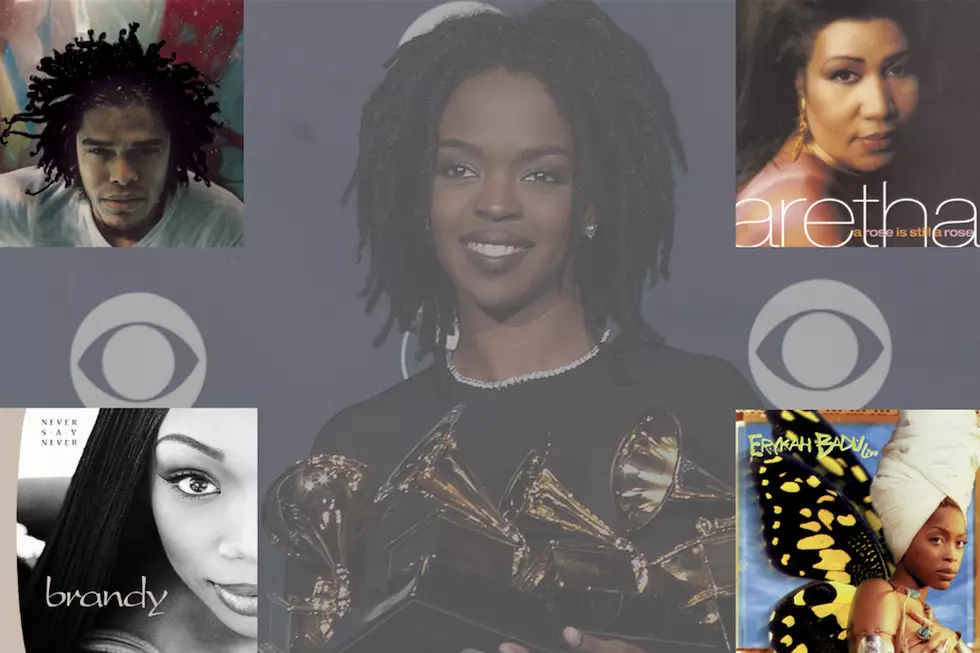
Mike WiLL Made It Reveals Work on Brandy’s New Album & Ludacris Collaboration
Eight years ago, Mike WiLL Made It was working on his autograph. At 14 years old, he was a triple threat in high school athletics and never thought his fame would come through anything other than winning national championships. In a sense, his entry into the hip-hop industry has been just as triumphant as any major league win.
In 2007, Mike WiLL Made It received his first-ever placement with Atlanta rapper Gucci Mane on the cut 'East Atlanta 6.' Since then, the Marietta, Ga., native has been pushing himself even harder, achieving placements on projects like Young Jeezy's 'TM103' and Yo Gotti's 'Live From the Kitchen.' Most recently, he's lent his skills to most of Gucci's latest mixtape, 'Trap Back.' At this point, Will has complete confidence in what he contributes to the trap-rap formula. Even at 22 years old, he has an unwavering sense of urgency, an ear for what's fresh and the need to do more than what's expected. It's a good thing he has his autograph figured out.
The BoomBox spoke with Mike WiLL Made It about collaborating with Sean Garrett to score a placement on Brandy's new album, producing a beat for Ludacris and using the "I have to use the bathroom" excuse to meet Gucci Mane and begin a working relationship.
Did you think you'd be producing rap records as a kid?
Nah. Actually, I was playing basketball, baseball and football. That's what I was doing, focusing on the sports.
Really?
Man, I already knew I was gonna be playing for the Knicks or the Lakers. I was working on my autographs, thinking about what my number would be and all that s---. I was gassed [laughs]. But you know, I still ended up making it to the pros, but in another way.
Right. A friend of yours actually encouraged you to think about getting behind the boards.
Yeah, pretty much, and his name is Fortune [chuckles]. Crazy, right? That's my lifetime friend. That's crazy, but he really did plant that seed. He saw the talent in me. He saw that I could play songs back from the radio on this little broke ass keyboard that I had. The batteries would be falling out the back and all that -- we had tape on the bottom to keep the batteries in. I had to hold it on my leg, and then I might be going in while he's rapping and then one of the batteries might come out the s--- and it just f---ed up the whole vibe. It was crazy. Sometimes, we'd be in the cafeteria, and I'd do the little pencil-tapping thing, and he'd be freestyling. I'd just be going in with the beat with my pencils, and he was like, "Man, you know how to make beats, bruh."
Watch Rick Ross & Meek Mill in 'Tupac Back,' Produced by Mike WiLL Made It
Which producers did you have the most respect for as you were learning their craft?
All the legends that came before me like, the Timbos, the [Dr.] Dres ... Definitely the producers from the south, the Shawty Reds... Pharrell. I was listening to all of them. I like the way Dre was known for his bass, his kicks and his claps. The way Dre's s--- would just hit was crazy. Timbo was the same thing. [His work] just sounded so big. He could cross over and go pop or slow it down and give you an R&B track that you can still move and dance to, like a slow banger, but up[beat], but you can still dance to it, if you're a dancer. Then Pharrell just came in with his own sound all the way out of leftfield. Nobody saw it coming, and when he came, he just mashed the gas. Shawty Red was the first one to bring that aggressive sound that you're hearing now. Well, I won't say the first, but he was one of the first to really get acknowledged for it. He was definitely the first person to bring the hard, movie-score-ish-sounding s---. You know what I'm saying? Shawty Red, I definitely salute him. I grew up on his music.
I heard that you have more than rap production on your mind as well. How's that going?
Yeah, I've been working with Jeremih. You know, he just did that first single for 50 [Cent]. It's a rap s--- but not really a rap track. 50 kind of singing on it, and it's kind of a fun, uptempo record. It's a crossover pop track -- the first pop record that I did. I did a record with Jeremih called '773 Love,' and it's crazy. It's like a 'Birthday Sex' on steroids. It's just a dope R&B record. I've been working with Sean Garrett. We did a record for Brandy's up-and-coming project that's coming out. I've been working with Sean Garrett on a couple R&B and pop records that are coming that I can't really talk too much about, but yeah, I've definitely been on it. I ran into the homie Ne-Yo, and we're supposed to be getting to work soon. We chopped it up, talked about getting in the studio, and that would definitely be an R&B-pop lane. I've really just been working with everybody, to be honest, man. I'm on my way to the R&B-pop world ... I'm definitely looking forward to the record with Ludacris, which is like a big crossover record, and he's going to get a big pop feature for it.
Are you finding it more difficult to do a pop track as opposed to the more aggressive rap cuts?
It's harder to do an R&B-pop track, but that's the challenge. Me doing the aggressive rap music for so long, I can do it in my sleep or with my eyes closed. I remember when I started making beats, I was wondering how I could get a track to hit hard and sound like a club banger like Lil Jon's -- like what was gonna be the drum pattern. But once you have your formula, you can pretty much get it. One thing about pop tracks is that it's all about the melodies. You gotta have the melodies in there, and they have to be the right ones. I try and keep my same twists and sound on it, to make sure that it still has what I'm known for and just bring the pop melodies that I could take to an R&B or pop artist. They can just go on top of it and fill in the gaps, holes and the little pockets in the beat that are open. R&B and pop is really about melodies, and it takes a little more time. That's the challenge.
Do you produce for artists with the storyline already in mind?
To tell you the truth, if I just made the beat and didn't have that in mind, then I'd just be a beatmaker. That's the difference between a producer and a beatmaker: A producer puts a whole record together, so of course, when the beat is done, I already know who I'm taking it to, and I already know how they should come on it. I used to email a lot of tracks, and I slowed down on that ... Sometimes, I'll email a track, and the artist'll get on there and do however they feel, like with 'Tupac Back,' and that came out dope. But I already had that idea in mind: an aggressive beat with Rick Ross rapping on it, feel me? Of course it's gonna have that outcome, like one plus one makes two. It was easy, but like a lot of the other artists I've worked with -- Gucci Mane, 2 Chainz, Future -- we'll be in the studio, and I'll bring the beat in like, "Man, this is the one! You gotta paint that picture like this." Because as a producer I always try and give an outline sketch on the track, like how I'm thinking. It's the artist's job to paint that picture, to come with all the right colors and all that. I can't come with the lyrics and the rhyme scheme. I can't come up with all that, you know? But I can tell you if you flowing right.
The track on the Yo Gotti album ['Cases'] -- they were asking me for beats, and I was like, "Bruh, I got this one beat that I ain't finna let nobody hear. Gotti has to get on this muhf---er." I emailed it to him, and I guess they lost the email. So I pulled up on him when he came to Atlanta. I just gave him the CD, like, "Bruh... I'ma keep giving y'all this one beat, and I ain't finna give it to nobody else. This is that beat! You know what I'm saying?" He hit me later, like, "I'm in New York. I have a hook to that beat. I'm gonna finish it." A month later, he put a verse on it, and I saw that 2 Chainz was on it, too. They were doing it for a mixtape, and the label heard it and was like, "Hell no! We need that for the album." That's how I got the Gotti placement.
Listen to Yo Gotti's 'Cases' Feat. 2 Chainz, Produced by Mike WiLL Made It
This all started from that first track, 'East Atlanta 6,' with Gucci Mane a few years ago.
Yeah, I got plenty of tracks with Gucci Mane. I have, like, 30 songs with him. He just put out a tape, 'Trap Back.' I got five tracks on that. It's all about timing. Timing is everything. Even when I ran into Gucci, I was really at Patchwerk messing with my homeboy who raps. I was down there playing beats for him. He worked at Patchwerk, so he told me, "You know Gucci upstairs, right?" As ambitious as I am, I took a CD and went right upstairs, waiting for Gucci to walk from the studio to the lounge. I told my homeboy, "Hold on bruh. I gotta go to the restroom." He already knew what I was on [laughs]. So I went upstairs, Gucci came out and I was like, "Ay, Gucci, check out these beats." So I gave him the beats, and he went, popped it right in and freestyled over all of them, just in the lounge area. From there, we just exchanged numbers and whatnot. That was my first time meeting Gucci.
Timing is everything about this music industry. I always feel like you can't rush into things. There's a lot of opportunities that I might've missed or slipped on, but I don't really dwell upon it, because I really feel like I put god first anyway, and everything is in god's hands. I always feel like everything is gonna shape up and form into how it's supposed to be anyway. It's definitely all about timing.
You're so young that whatever opportunities you missed, they're sure to come around again. In the same vein, though, are you intimidated about how far you have left to go, or does it excite you?
Oh, I'm definitely excited about it, because once I crossover to R&B and pop, I wanna start doing movie scores. I wanna keep moving. Despite the fact that I'm 22, I wanna build this music. I wanna change the game, and I wanna bring more producers who do the same thing ... I wanna keep growing and doing even more things. I feel like the intimidating part is not knowing what you're going to do next or not having a vision. If you don't have a vision and you're just making songs, then I'd be intimidated, because it'd be like, "OK, I'm making all these hot songs now, so when I'm 28, I gotta make songs that are just as hot." But when I'm 28, I want the people who hear me making all these hot street records -- I want them to be like, "Oh, he's been doing that. He did the pop s---, the R&B shit and now he's doing this movie." Like, movie directors coming to me, "We want Mike Will to score this movie or do the soundtrack for this movie." I want really to build my production company up and all that. So, no, I don't feel intimidated. I feel like I'm right on track, even though I have all this stuff out here, all this work going on, I always tell myself and everyone else that I haven't even started yet. That's my thing. I'm so ambitious, that's just how I am. I just like to keep going.
Talk about your production company, Eardrummers Entertainment.
I got a couple producers right now, and a couple producers that I've been trying to build. But I've been going in with a couple of the producers so far, on the albums and whatnot: Marz and P-Nasty. Eardrummers was an idea I came up with when I was 18. I had another production name at first, but it was so cliché, so I came up with another production name and on one of Gucci's early mixtapes, dude had shouted it out ... That was, like, in '07. That's when I was really like a one-man band, and I had a couple homeboys that I grew up with, and they were rocking along with me. Then I got my whole plan together in 2010, and signed a couple producers and whatnot, locked in with them and came up with the sound, you feel me? With the official sound, like what we're gonna run with, and started mashing the gas, building the team, building my company up.
If the right opportunity came along, would you sign to an in-house production deal with an artist?
I don't really understand why I would go and do in-house. You know what I'm saying? I feel like me building this company like this and working with everybody -- I just feel like, "Let's work."
You've worked with so many hitmakers, including Meek Mill for 'Tupac Back' last year. Who would you like to work with that you haven't yet?
I really wanna work with everybody, man -- all the way from LMFAO to ASAP Rocky and Linkin Park. I wanna work with Madonna! Like, s---, you feel me? [Laughs] There's no statute of limitations on what I wanna do or who I wanna work with. I'm really ready to work with everybody. Of course, with me being one of the hottest producers in Atlanta, and me messing with the whole Atlanta movement, of course me and Tip gotta get in and knock out a record.
Watch 'Learn About the History of Rap'
#fivemin-widget-blogsmith-image-702693{display:none;} .cke_show_borders #fivemin-widget-blogsmith-image-702693, #postcontentcontainer #fivemin-widget-blogsmith-image-702693{width:476px;height:357px;display:block;}

More From TheBoombox

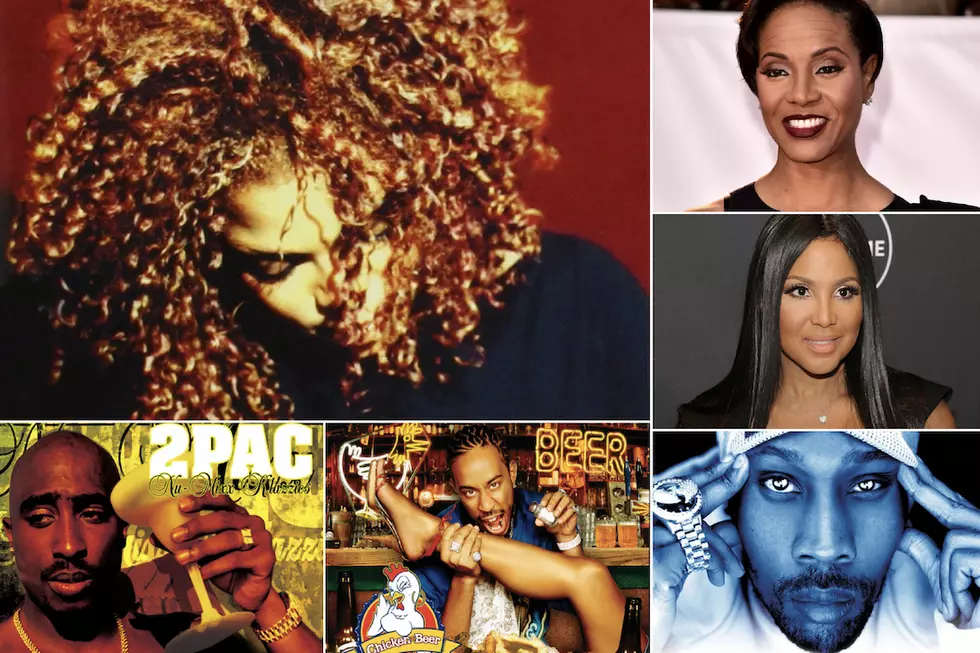


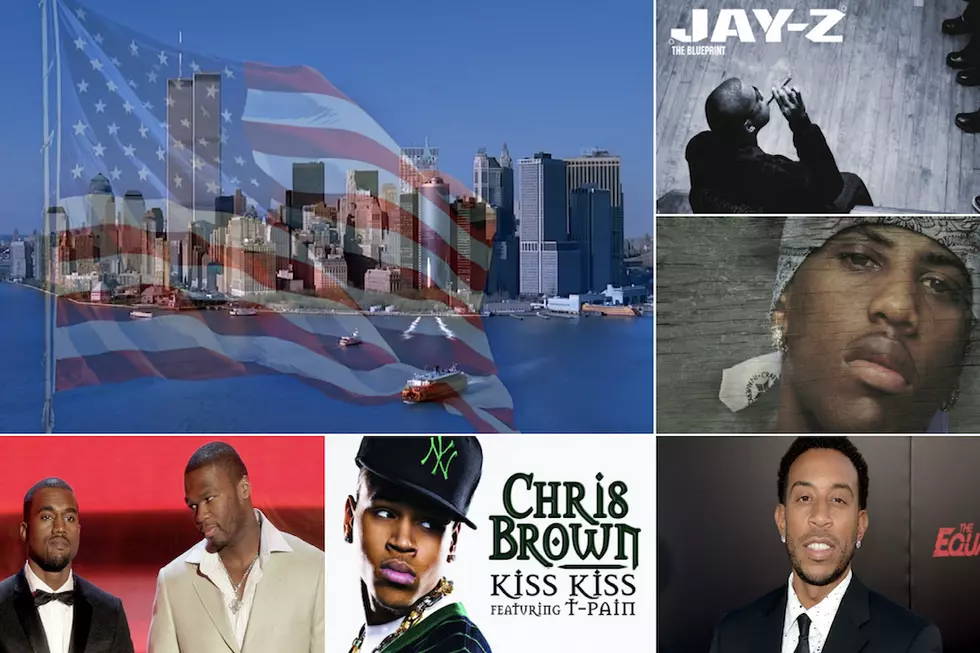
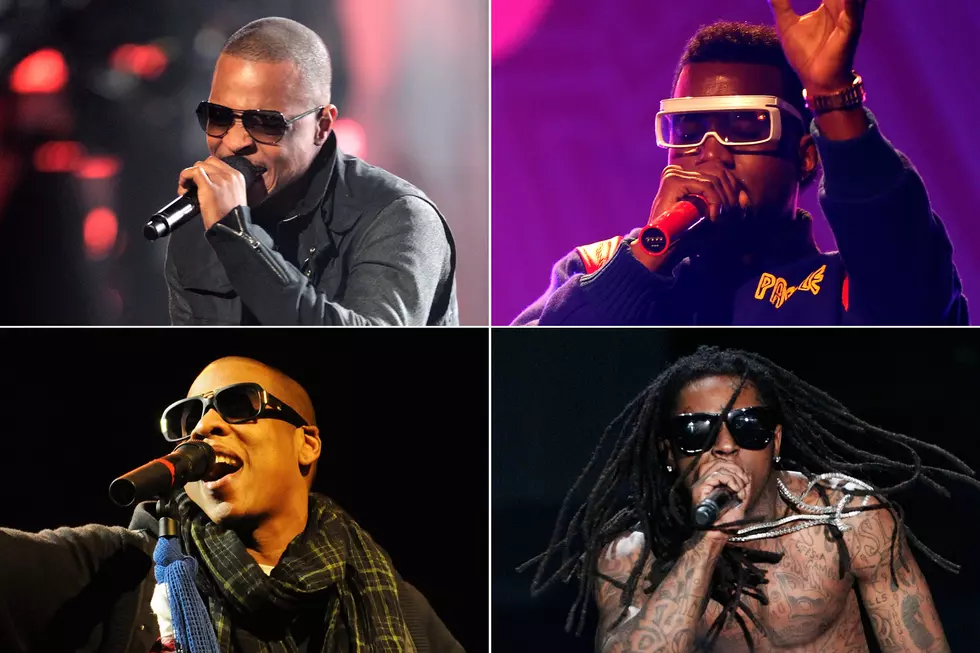
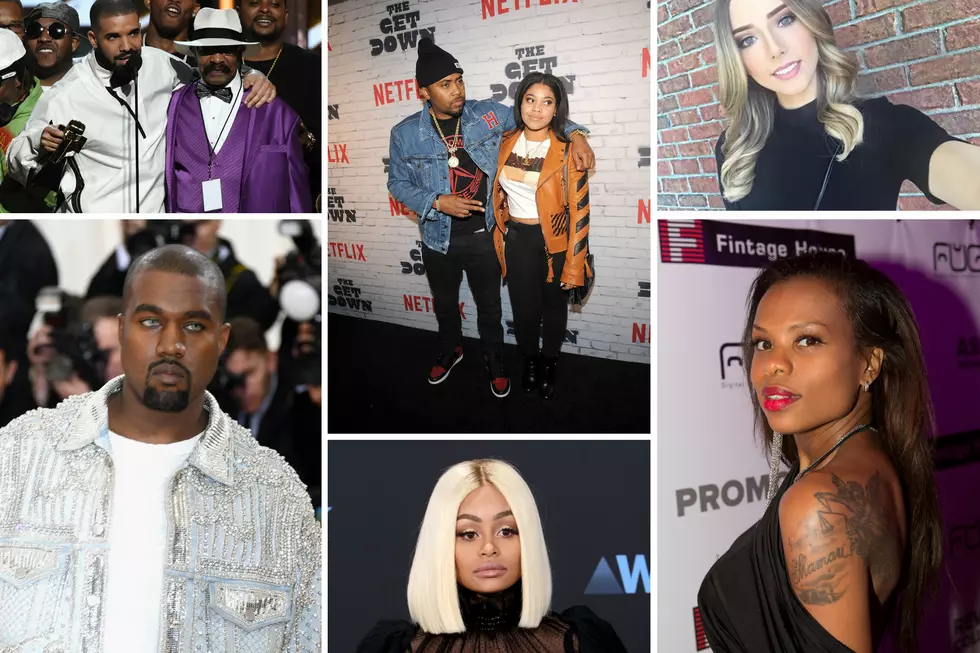
![20 Rappers Starring In Fun Commercials [VIDEO]](http://townsquare.media/site/625/files/2018/08/Rappers-and-Commericals.jpg?w=980&q=75)
